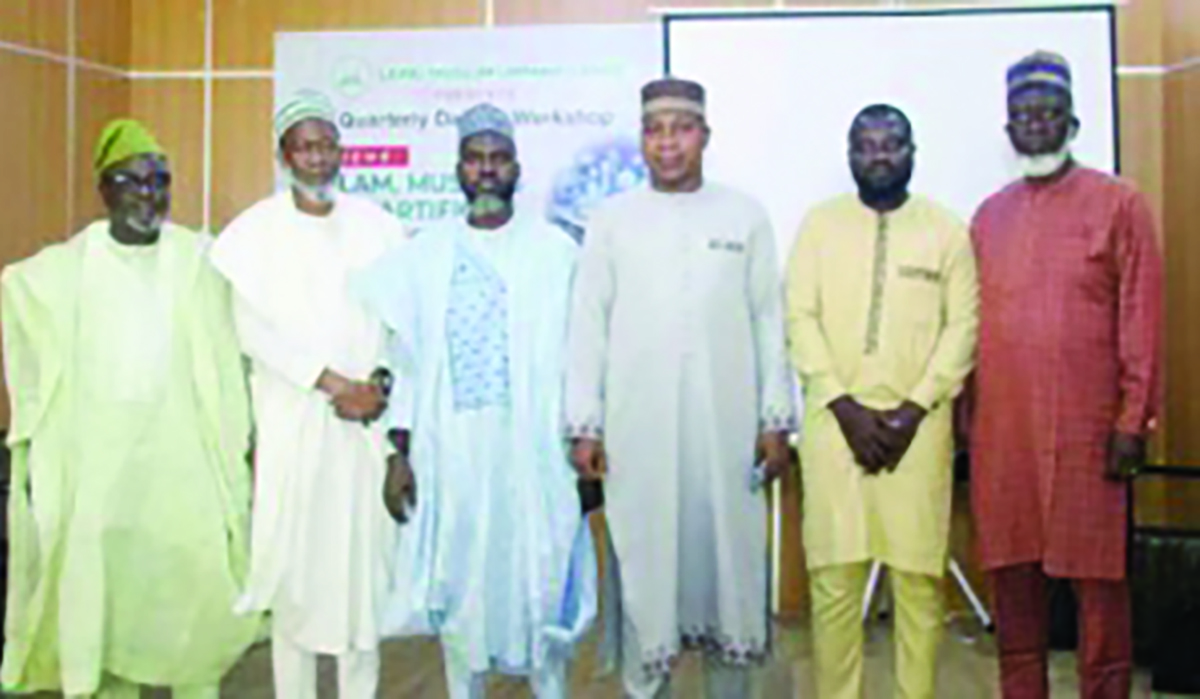 The stories of the Qur’an are one of the very essential sciences, relevant to the core of the Qur’an and reason those stories will continue to be source of inspiration and guidance to humanity till the end of time. Besides, this also underscores the inimitability of the Qu’ran as the final revealed book to the mankind through the agency of Prophet Muhammad (SAW).
The stories of the Qur’an are one of the very essential sciences, relevant to the core of the Qur’an and reason those stories will continue to be source of inspiration and guidance to humanity till the end of time. Besides, this also underscores the inimitability of the Qu’ran as the final revealed book to the mankind through the agency of Prophet Muhammad (SAW).
The science of the stories of the Qur’an lead to the essential central sciences: knowing God, the Day of Judgment, and knowing the path that leads to God. Studying the stories of the Quran leads to knowing the objectives of the Quran which are mainly to guide humanity to path of rectitude in this world and to external bliss in life after death.
The stories of the Quran are very unique. They are didactic and timeless. The incidents are not invented. The Quranic stories are real stories of real individuals.
Out of the twenty-five Prophets who have been named in the Qur’an, not every Prophet’s story has been related. All prophets and messengers are good examples for humanity then, now and forever. Why specifically these individuals? There must have been something very precious, important and relevant that can be applied throughout time and space in these Quranic stories.
A number of Quranic stories are very long. Others are concise. Some are mentioned once. Others more than once. And the most frequently mentioned individual in the Quran is Prophet Musa (Alayhi Salaam (AS)). The scholars observe this as a sign of the truthfulness of Prophet Musa (AS). It is marvellous to realise that here is a book (Qur’an) telling us more about someone other than the recipient of the book himself (SAW).
Why is it that Musa (AS) is so frequently mentioned in the Quran? One of the observations is that his life is full of lessons for humankind which are not only learnt after his prophethood; rather, they are found even when he was a new-born. His righteous mother’s behaviour particularly, gives mankind numerous lessons that are relevant even today, chief of which is to put our trust in Allah (SWT) always, even in the season of hopelessness.
Prophet Musa (AS) was born in a year in which the sons of the Children of Israel were put to death the moment they were born. Imagine the sense of fear that permeated every aspect of life under such conditions. Pregnancy was not an event to be celebrated and cherished but a source of fear and insecurity.
Security guards roamed the streets and invaded homes searching for pregnant women. Therefore, Musa’s mother concealed her pregnancy. Imagine the conditions under which she gave birth: fearful, silent, possibly shrouded in darkness.
Whatever the conditions, Musa was born. A boy. His parents’ heart must have constricted with joy and fear simultaneously. What were they to do now, how would they conceal a new-born baby? Musa’s mother was a righteous woman, pious and God fearing, therefore in her hour of need she turned to God and He (SWT) inspired her next actions as reflected in the verse of the Qur’an quoted above (Qur’an 28V7).
Musa’s mother has just spent the last months concealing her pregnancy for fear that her child would be put to death, now as she holds him to her breast, Allah (SWT) inspires her to cast him into the river. Not a gentle stream but the Nile River, a huge powerful river with a strong current. Her initial reaction must have been that such an action would be condemning him to certain death.
But the faithful mother put her trust in Allah, believing strongly in the divine statement: “Do not fear and do not grieve, for We will bring him back to you.” She made a waterproof basket, placed her tiny son inside, and cast him into the river. Ibn Kathir narrates that as the basket touched the water the raging current became calm and gentle, sweeping the basket silently downstream. Musa’s sister was instructed by her mother to slip silently through the reeds and follow the basket on its journey.
The basket with its precious cargo courses down the Nile River, passing houses, boats, and people, unnoticed until it stops at Pharaoh’s palace. Musa’s sister watches in fear, as someone from Pharaoh’s household removes the basket from the river. Musa was cast into the river to escape certain death and now his resting place is the palace of Pharaoh. This is surely too much for a mother to bear, however events about to unfold will demonstrate that the promise of Allah will certainly come to pass.
Baby Musa was taken to Khasiyah, the wife of Pharaoh. Khasiyah, in contrast to her arrogant, proud husband, was a righteous, merciful woman.
Allah opened her heart and Khasiya looked down up on the tiny baby and felt overcome by her love for him.
The royal couple were unable to conceive a child and this tiny baby awakened her maternal instincts. Khasiyah clutched him to her chest and asked her husband to accept the child into family.
Possibly, against his better judgement, Pharaoh accepted the child, who was part of Allah’s design to bring down the royal house. Suddenly, fear turned to security as Musa began to live as a royal son of Egypt, enjoying the strongest human support in the land. Khasiyah and Pharaoh now had a son, who was now protected by the very person who had sought to kill him.
Thereafter, Khasiyah summoned wet nurses to the palace, but the tiny child refused to suckle. This was a cause of great distress; in those days, there were no baby formulas or supplements to offer the child. At this stage, the royal palace was in turmoil, the women of the household were fussing over Khasiyah and her new baby, therefore, no one noticed the presence of Musa’s sister amongst the servants.She summoned all her courage and stepped forward offering a solution. She said she knew of a woman who would suckle the child affectionately. Why would the royal household take the advice of an unknown child, if not to fulfil Allah’s plan. Musa’s sister was ordered to rush and fetch the woman.
Without hesitation, mother and daughter lost no time returning to the palace. When Musa was handed to his real mother, he settled immediately and began to suckle. According to Ibn Kathir, the household, including Pharaoh himself, was astonished. Pharaoh asked the woman who she was and she replied, “I am a woman of sweet milk and sweet smell, and no child refuses me.”
Pharaoh accepted this answer, and thus Musa was returned to the arms of his mother and raised in the palace as a prince of Egypt.
“Thus, We returned him to his mother, so that she may be comforted, and not grieve, and know that God’s promise is true. But most of them do not know.” (Q28V13).
In our next sermon, three major interventions undertook by Prophet Musa (AS) on behalf of his people will be interrogated to underscore the fact that leadership is key in surmounting hardship and other challenges confronting humanity in this contemporary period.






